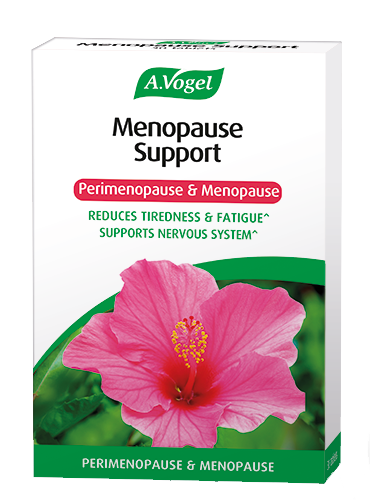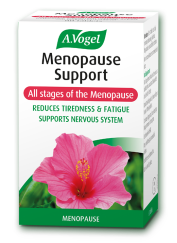An introduction to headaches and menopause
Some women entering the menopause experience headache for the first time in their life. This can be disturbing and sometimes debilitating. However, menopausal headaches are most common among women who have suffered from headaches before, particularly around their menstrual period, or among those who are taking hormonal contraceptives.

There are several types of headaches that the menopause can trigger:
- Migraines – these are the most intense type of headache. The pain grows generally on one side of the head or behind the eyes and begins to pulsate or throb. This is sometimes accompanied by aura, or flashing lights and nausea
- Tension headaches – these may be associated with stress and tend to be less severe than migraines. They are characterised by a feeling of tightness or moderate pain across the forehead and back of the head and neck
- Sinus headaches – the sinuses are small air-filled cavities behind the forehead and cheekbones. If the lining of these sinuses becomes inflamed, you may feel congested and experience facial pain.
Why does menopause cause headaches?
The exact connection between the menopause and headaches is somewhat unclear. However, much of the blame can be placed upon the hormonal changes that the body goes through during the menopause. The hormones that are affected the most during the menopause are oestrogen and progesterone.
Oestrogen is thought to cause blood vessels to dilate, while progesterone causes them to tighten. As the level of these hormones fluctuates, the blood vessels are constantly expanding and contracting. This can cause pressure changes in the head and result in the headaches you are experiencing.
Diet, lifestyle and home remedies for headaches
Some people find that certain foods trigger headaches, particularly migraines. If you work out that particular things such as chocolate, caffeine or red wine are intensifying your problem it will be worth limiting or eliminating these foods from your diet.
Try to avoid stress because this can often result in headaches. While it is easy to say ‘stop stressing’, it is not so easy to do. If you feel that stress is at the root of your headaches, our stress and menopause page may help.
You should try to eat regularly. If your blood sugar level drops too much in between meals this can often result in headaches. You should eat small and healthy snacks such as dried fruit and nuts to keep your blood sugar levels up.
Some people have found that upping their intake of magnesium and calcium has helped their headaches. Magnesium and calcium can be found in foods such as dark green vegetables, dried fruit, nuts, and wholegrains. However, most people will struggle to absorb enough magnesium purely through their diet, and so may need to take a food supplement. An excess of magnesium and calcium may cause headaches, however, so it is important to take the correct dosage.
Are there herbal remedies to help me?
As hormonal imbalances are often at the root of menopausal headaches, start with using a soy based supplement to help settle the hormones at this time of your life. The best extracts are derived from fermented soy because the active ingredients are better absorbed by the body.
A.Vogel Menopause Support | For Perimenopause, Menopause & Postmenopause Symptoms
£8.99 (30 tabs) In Stock
Changes in your hormonal levels can make you less able to cope with stress which in turn, lowers your threshold for stress-related headaches. Helping your mind and body cope better with stress can be the best approach if this is your situation.
Eileen's TOP TIP: Valerian is one of our most popular herbs to calm both mind and body. Like many 'stress-herbs' it works well in combination with others with the same action. A.Vogel Stress Relief contains both valerian and hops and as a tincture, works quickly to calm you down.
Tension in the muscles of the neck, skull and scalp can creep into your life without being noticed and can lead to tension headaches, even when you are not feeling under stress. This is the reason why a head massage is so relaxing.
Eileen's TOP TIP:: Massage essential oils based on eucalyptus and peppermint into your temples and the nape of your neck to help you relax. Better still, get your partner to do it for you.
What about conventional medicine?
If you do not find that home or herbal remedies have eased your symptoms, then it is important to speak to your doctor. While headaches at this time of life are likely to be caused by hormonal changes, there are many other causes of headaches. Your doctor will be able to check you for thyroid or adrenal changes, both of which can trigger headaches.
Your doctor may suggest painkillers or hormone treatment to ease your symptoms, although it is important to understand the side effects of these and the length of time that these treatments can be taken for.









